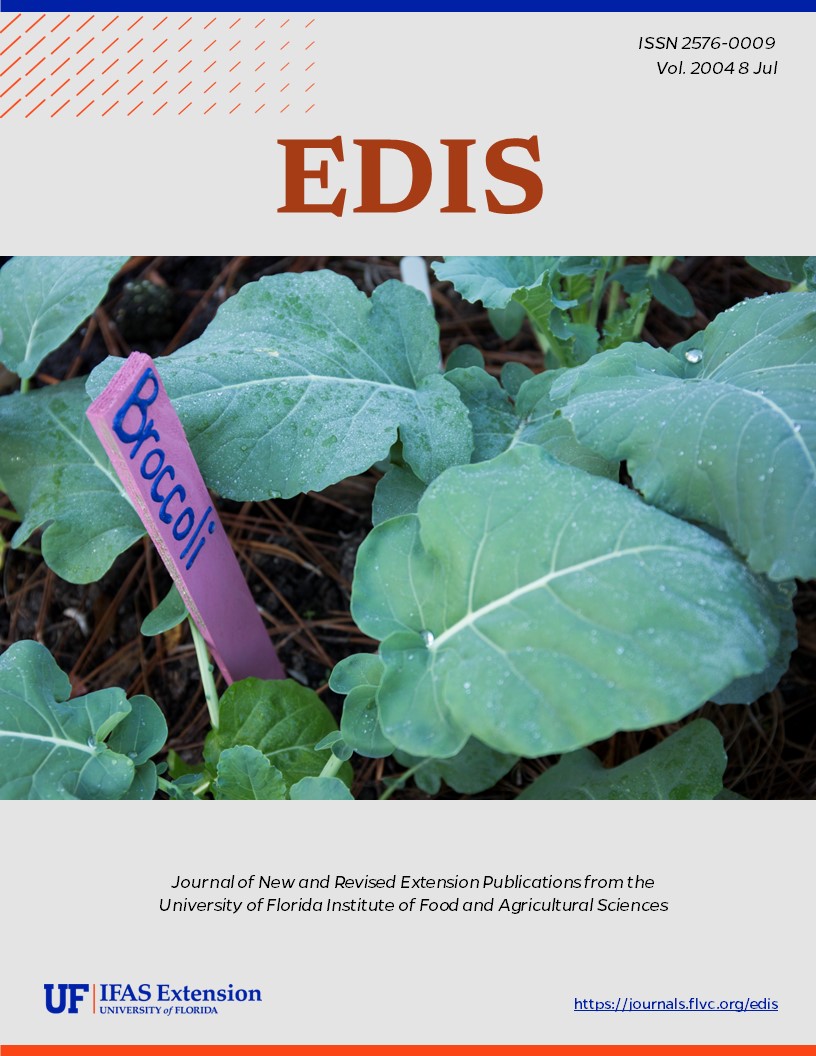Resumen
The sapote fruit fly, Anastrepha serpentina (Wiedemann), sometimes called the serpentine fruit fly, is intercepted frequently in United States ports of entry in various hosts from several countries. It is an important species in Mexico because its larvae infest sapote (Caloca.rpum spp.), sapodilla (Achras zapota), willowleaf lucuma (Lucuma salicifolia) and related fruits. This document is EENY-206 (originally published as DPI Entomology Circular 91), one of a series of Featured Creatures from the Entomology and Nematology Department, Florida Cooperative Extension Service, Institute of Food and Agricultural Sciences, University of Florida. Published: April 2001.
Citas
Baker AC, Stone WE, Plummer CC, McPhail M. 1944. A Review of the Mexican Fruitfly and Related Species. U.S. Department of Agriculture Miscellaneous Publication No. 531, Washington, D.C. 155 p.
Norrbom AL. (31 October 2001). Anastrepha serpentina (Wiedemann). The Diptera site. http://www.sel.barc.usda.gov/diptera/tephriti/Anastrep/serpent.htm (14 January 2002).
Phillips VT. 1946. The biology and identification of trypetid larvae (Diptera: Trypetidae). Memoirs of the American Entomological Society 12, 161 p.
Stone A. 1942. The fruitflies of the genus Anastrepha. U.S. Department of Agriculture Miscellaneous Publication No. 439, Washington, D.C. 112 p.
White IM, Elson-Harris MM. 1994. Fruit Flies of Economic Significance: Their Identification and Bionomics. CAB International. Oxon, UK. 601 p.
Unless otherwise specified, articles published in the EDIS journal after January 1, 2024 are licensed under a Creative Commons Attribution-NonCommercial-NoDerivs 4.0 International (CC BY-NC-ND 4.0) license.

